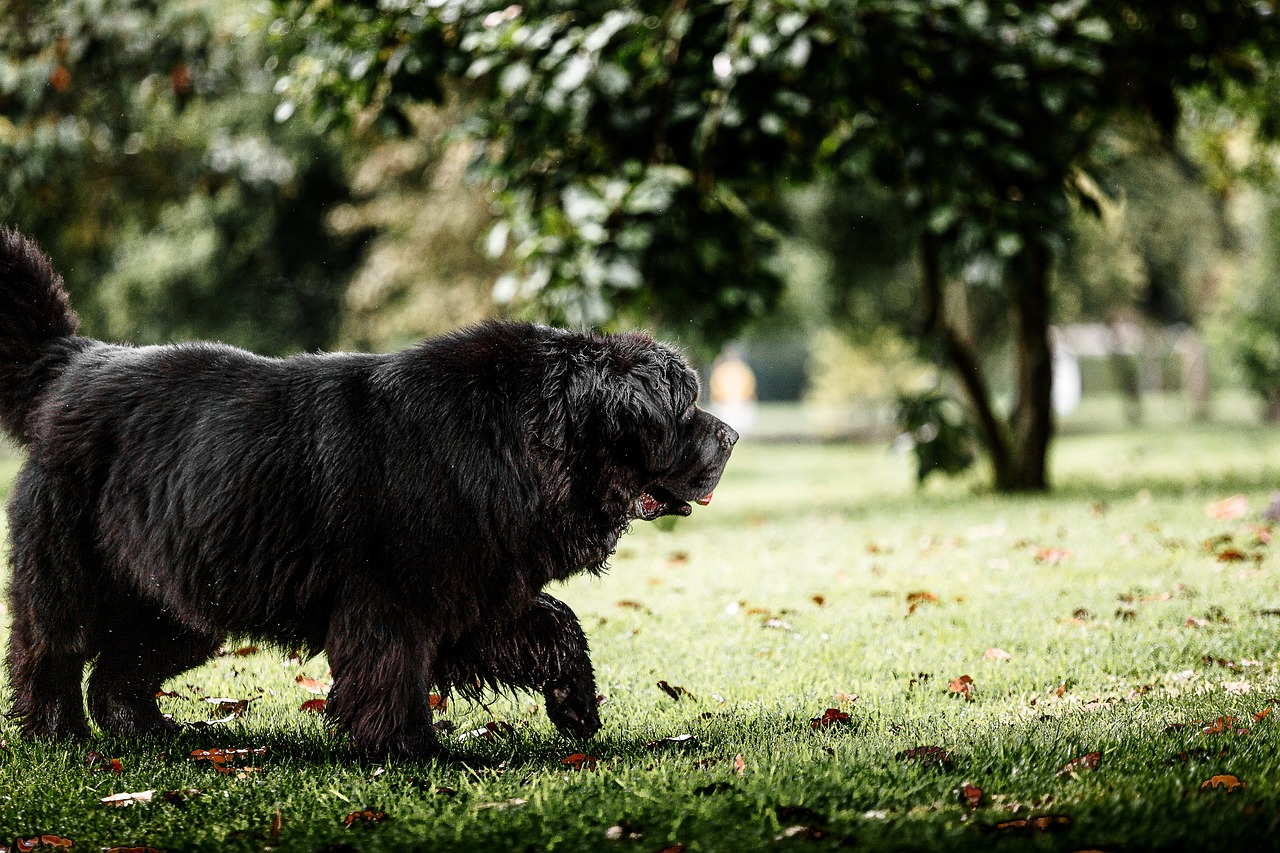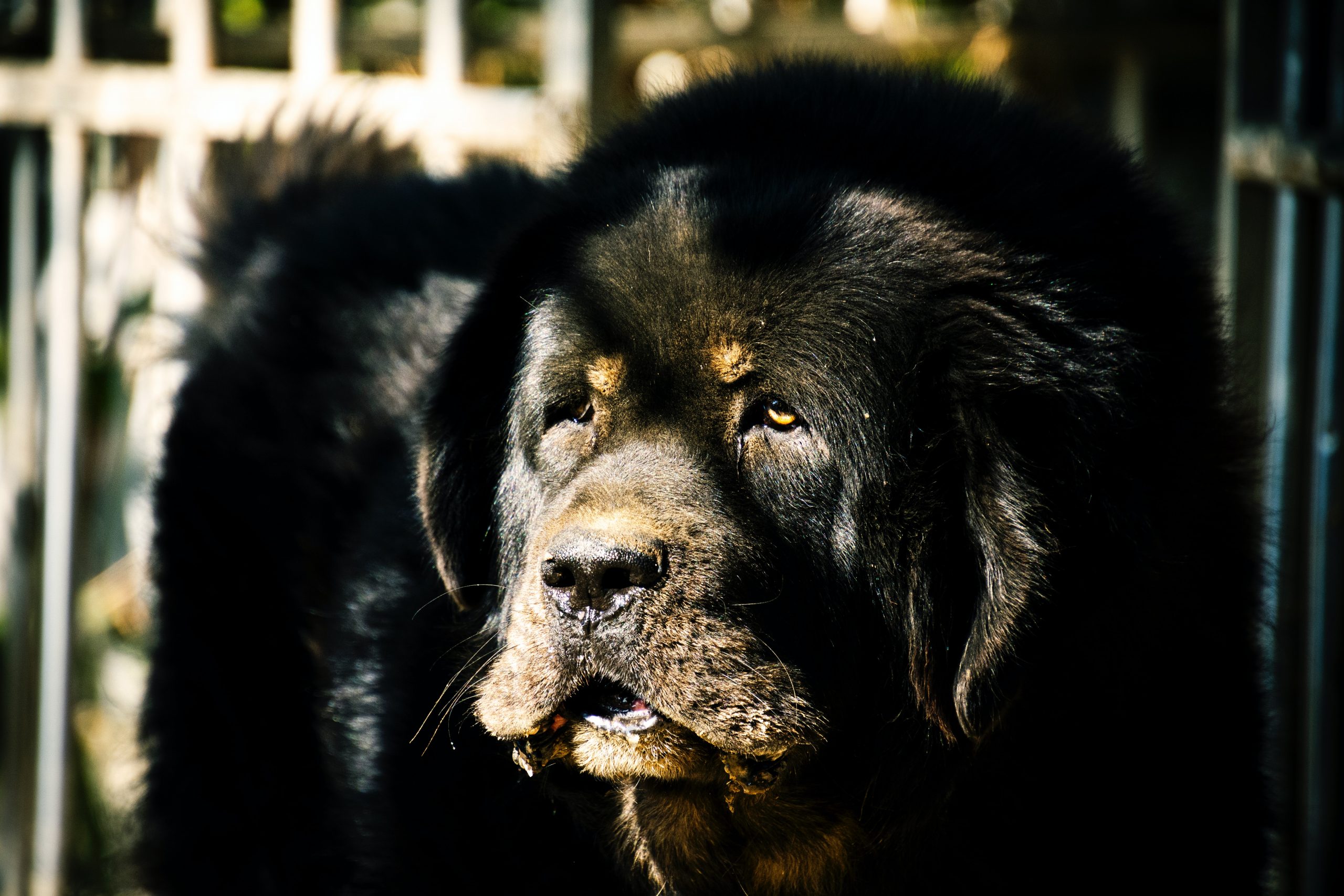Newfoundland dogs, often referred to as “gentle giants”, combine strength with a kind temperament. This breed is beloved for its loyal, patient, and gentle nature, making them fantastic companions for families, singles, and seniors alike. In this article, we explore eight key traits of Newfoundland’s temperament.
1. Gentle and Sweet-Natured
The Newfoundland is renowned for its gentle and sweet disposition. They are notably patient, which makes them fantastic companions for children. Their calm demeanor often sees them being gentle even with smaller pets in the household.
2. Loyal and Protective
Loyalty is a hallmark of the Newfoundland’s temperament. They form deep bonds with their families, often displaying protective instincts, particularly towards children, making them excellent guard dogs without being overtly aggressive.
3. Intelligent and Trainable
Newfoundland are highly intelligent, making them relatively easy to train. They respond well to positive reinforcement techniques. However, due to their size, early training and socialization are crucial to manage them effectively.
4. Social and Friendly
While protective, Newfoundland are typically friendly and social dogs. They enjoy the company of their family and are usually welcoming to guests and other animals, making them great additions to homes with multiple pets.
5. Calm and Even-Tempered
Despite their large size, Newfoundland is known for their calm and even temper. They are not typically hyperactive or overly excitable, making them comfortable living companions in various settings.
6. Hardworking and Diligent
Originally bred as working dogs, Newfoundland has a strong work ethic. They excel in various dog sports and activities, including water rescue, due to their strength, endurance, and diligent nature.
7. Adaptable to Various Living Situations
Newfoundland can adapt to different living environments, including apartments, as long as they have enough space to move comfortably. They require regular exercise but are not as demanding as other large breeds.
8. Requires Companionship
Newfoundland thrives on human companionship and does not do well when left alone for extended periods. They require attention and emotional connection with their owners to live happy and fulfilled lives.
The Newfoundland’s temperament makes it a beloved breed among dog enthusiasts and families. Their gentle, loyal, and intelligent nature, combined with their ability to adapt to various living situations, makes them wonderful companions. Prospective Newfoundland owners should consider their grooming and exercise needs, as well as their sheer size, to provide a loving and suitable home for these gentle giants. With proper care and attention, a Newfoundland will offer unconditional love and protection, embodying the ideal traits of a man’s best friend.
How Does a Male Newfoundland Temperament Compare to a Female Newfoundland?
Male Newfoundland Temperament:
1. Dominant and Confident: Male Newfoundland tend to show more dominant and confident behaviors. They often take the role of protectors in the household, being vigilant and ready to defend their families when they sense a threat.
2. Consistent Affection: Male Newfoundland often demonstrate consistent levels of affection towards their owners. They are generally more outgoing and eager to please, which can make them appear more lovable and engaging to their families.
3. Territorial Instincts: Males might exhibit stronger territorial instincts. They can be more prone to marking behavior and might need careful monitoring and training to ensure they respect boundaries within and outside the home.
4. Larger Size: Males are typically larger than females, which might influence their energy levels and space requirements. Prospective owners should consider the implications of having a larger pet in terms of care, feeding, and space.
Female Newfoundland Temperament:
1. Independent Spirit: Females might showcase more independence compared to males. While they are affectionate and loyal, they may not always seek attention actively, being content doing their own thing at times.
2. Maternal and Protective: Female Newfoundlanders often have strong maternal instincts, making them extremely protective of their families, especially children. This nurturing trait makes them excellent companions for families with kids.
3. More Reserved: Females can be slightly more reserved or cautious in new situations or with unfamiliar people. While they warm up quickly, they might take a moment to assess their environment before engaging fully.
4. Subtle Mood Changes: Female Newfoundland might experience subtle mood changes based on their hormonal cycles. Being aware of these fluctuations helps in understanding and responding to their behavioral changes appropriately.
When choosing between a male and female Newfoundland, consider the subtle differences in their temperaments, but remember individual personalities may vary widely. Both genders offer immense loyalty, affection, and companionship, making the Newfoundland a beloved breed among many. Regardless of gender, proper training, socialization, and care are crucial in raising a well-adjusted and happy Newfoundland. The right fit for your home depends on your personal preferences, lifestyle, and what you are looking for in a furry companion. With the necessary commitment and responsibility, both male and female Newfoundland make wonderful, loving pets for the right households.
Frequently Asked Questions about a Newfoundland‘s Temperament and Personality

1. How affectionate are Newfoundlands?
Newfoundlands are highly affectionate and loyal dogs. They form deep bonds with their owners and family members, often being especially gentle and protective towards children.
2. Are they good with children?
Absolutely. Their patient and gentle demeanor makes them excellent companions for children. They are often very tolerant and protective, making them ideal for families.
3. Do Newfoundlands adapt well to apartment living?
While adaptable, Newfoundlands are large dogs and may require more space to move comfortably. They can live in apartments provided they get sufficient exercise and space is adequately managed.
4. How are they with other pets?
Newfoundlands generally get along well with other pets. Early socialization is crucial to ensure they coexist peacefully with other animals in the household.
5. Are Newfoundlands easy to train?
With high intelligence and a desire to please their owners, Newfoundlands are relatively easy to train. However, early training and socialization are crucial given their large size.
6. How much exercise do they need?
They require moderate exercise to maintain health and happiness. Regular walks, play sessions, and some swimming are usually adequate for their physical needs.
7. Can they be left alone for long periods?
Newfoundlands thrive on companionship and don’t do well when left alone for extended periods, as they may develop separation anxiety.
8. Do they bark a lot?
Not necessarily. While they will bark to alert their owners of strangers or danger, they are not known for excessive barking.
9. Are they hypoallergenic?
No, Newfoundlands are not hypoallergenic. They shed seasonally, and regular grooming is required to manage their double coat.
10. What’s the difference between males and females?
Males tend to be larger and more confident, while females may be more independent and reserved. However, individual temperaments can vary widely.
11. Are they aggressive?
Newfoundlands are not naturally aggressive. They are known for their gentle and sweet nature, although they can be protective when necessary.
12. How do they behave around strangers?
They are usually reserved but not aggressive towards strangers. Early socialization can help them be more comfortable around unfamiliar people.
13. Is grooming a significant commitment?
Yes, Newfoundlands require regular grooming to manage their thick, double coats. Regular brushing, bathing, and occasional professional grooming are necessary.
14. How intelligent are Newfoundlands?
Newfoundlands are highly intelligent and trainable. They are quick learners and respond well to positive reinforcement training techniques.
15. What health issues are common for them?
Like many large breeds, they can be prone to hip dysplasia and other joint issues. They may also face heart conditions and are prone to a condition called “bloat”, so regular veterinary check-ups are essential.
What Kind of Person Is a Good Fit for a Newfoundland?
 1. Family-Oriented Individual
1. Family-Oriented Individual
Newfoundlands are excellent family dogs due to their protective and gentle nature. They are particularly good with children, showing patience and kindness. If you have a family, especially with young children, a Newfoundland can be a fantastic addition.
2, Active Lifestyle
While not excessively energetic, Newfoundlands require regular exercise to stay healthy and happy. Individuals who enjoy outdoor activities, and walks, or have a yard for the dog to move around in would provide an ideal environment for this breed.
3. Committed to Grooming
Newfoundlands have thick, double coats that require regular grooming. If you are willing to invest the time and resources into maintaining your dog’s coat through regular brushing, bathing, and occasional professional grooming, a Newfoundland could be a great match.
4. Patient Trainer
Training a Newfoundland requires patience and consistency. Individuals who are committed to investing time in training, preferably from an early age, would be well-suited to owning a Newfoundland. Positive reinforcement and gentle, consistent methods are most effective with this breed.
5. Space Provider
Considering their large size, Newfoundlands do best in environments where they have enough space to move comfortably. Individuals with spacious homes or access to large outdoor areas might find it easier to accommodate a Newfoundland.
6. Companion Seeker
If you are looking for a loyal and affectionate companion, Newfoundland is an excellent choice. They form deep bonds with their owners and provide not just companionship but also a sense of security.
7. Water Enthusiast
Newfoundlands are known for their love of water and are excellent swimmers. If you have access to safe water bodies or have a pool, a Newfoundland would undoubtedly enjoy this aspect of their life to the fullest.
8. Responsible Pet Owner
Owning a Newfoundland comes with responsibilities due to their size and maintenance needs. Responsible individuals who are prepared for the commitment and responsibility that comes with pet ownership would be ideal for a Newfoundland.
Newfoundlands make loving and loyal pets for the right individuals or families. Their gentle and protective nature makes them fantastic companions, particularly for families with children. The ideal owner is someone committed to providing the care, training, and attention that Newfoundland requires to thrive. If you are prepared to invest the time and love needed, a Newfoundland can be a rewarding and loving addition to your life.
 Toledo, United States.
Toledo, United States.